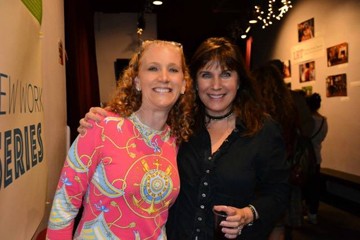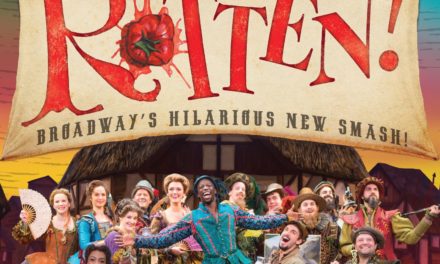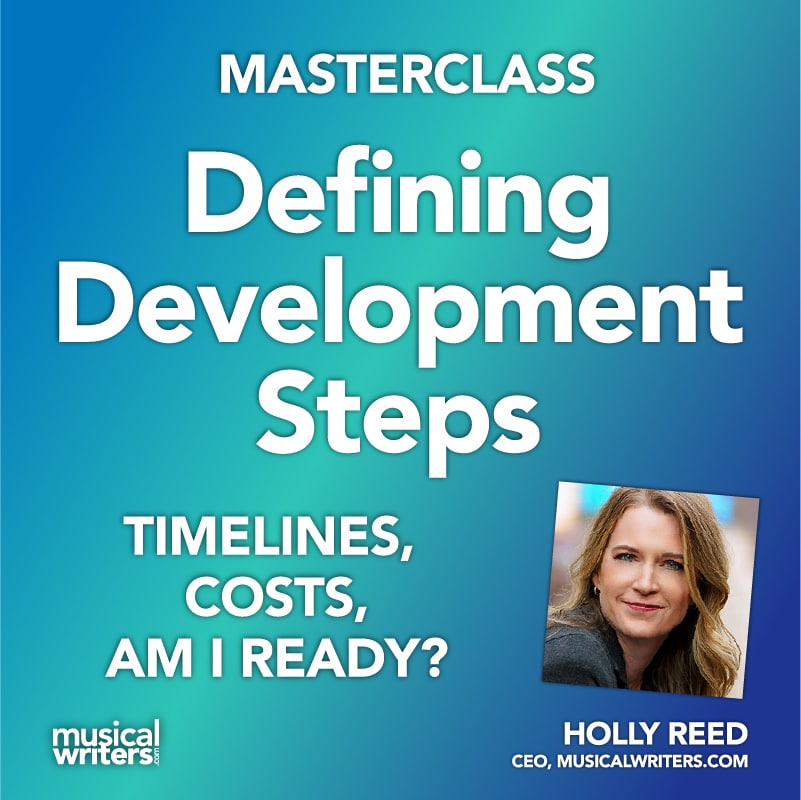A group of theater lovers have been trying to save Oscar Hammerstein II’s Pennsylvania farm from the interests of subdivision developers, I explained to Stephen Schwartz in a January 2019 interview. 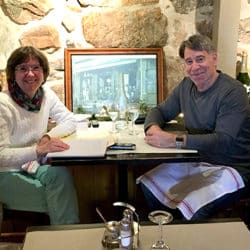
From my years of periodic tea or lunch interviews with the composer-lyricist for my biography of him, Defying Gravity, I already knew how much he appreciated their shows. For this interview I probed whether he felt a sense of debt to the earlier writing team’s work for enhancing his own style.
What follows is our discussion, which we both edited later to clarify our points.
Rodgers & Hammerstein Influence
Stephen was born in New York City in 1948, a year before South Pacific opened on Broadway. During the interview he thought back to his childhood days on Long Island.
“As you know, I listened to a lot of their work as a kid,” Schwartz noted. “South Pacific was the first musical I saw of theirs—a revival at City Center. I think it was the third musical that I ever saw. But my parents had all the cast albums.”
Unlike Stephen Sondheim, whom Oscar Hammerstein II famously mentored, Schwartz was self-taught in terms of how to write musicals. For performance and composition, he had piano lessons and studied for four years at Juilliard’s preparatory division. But for learning how musicals worked, he studied shows on his own through books, recordings, and live productions.
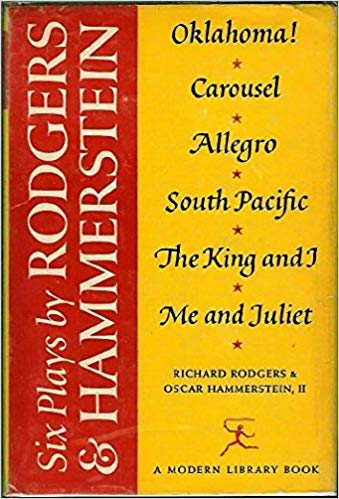
Since the days of Godspell and Pippin, Schwartz’s up-and-down career taught him lessons that he passes along to aspiring writers at ASCAP’s musical theater workshops. In Defying Gravity, I quote him as advising, “Musicals, like films, are essentially about structure, and if you get the structure right, then a multitude of sins can be forgiven. But if it’s wrong, the individual brilliance of the writing is hard-pressed to deliver anything.”
Over lunch when I asked him to opine about the Rodgers and Hammerstein influence on his profession, he focused on structure. I suggested, “One reason why people care about their work is, of course, that they affected musical theatre history. Do you have anything you can say about how they altered musical theater history?”
He replied, “It’s been well-documented how influential Rodgers ad Hammerstein were to the history of American music theatre, and I’m not sure I have anything useful to add in a general sense. But I have a personal feeling about how their shows affected the structure of the shows that I write.
For Wicked, Winnie Holzman and I were directly and consciously influenced by their shows, particularly The King and I, which is my favorite musical. There are two major characters who clash, and it’s the tension between them that’s going to drive the show—and the fact that there isn’t a good guy and a bad guy; that they are both equally right and equally wrong, if you will,” that was revelatory to me when I first encountered King and I, and I don’t know that we could have written Wicked without awareness of it.”
~Stephen Schwartz
A Lyricist Looks to Oscar’s Lyrics
As a young improviser at the piano, “Steve Schwartz,” as he was originally called, had aspired to become a musical theatre composer like Richard Rodgers. But for his college musicals, he wasn’t satisfied with other people’s lyrics, so he started writing his own, as he puts it, “out of self-defense.” Several decades later he took home a couple of golden Oscar statuettes for contributing lyrics to Disney’s Pocahontas.
As our discussion continued, we focus on facets of lyricist Oscar Hammerstein’s talent that had inspired him: the social consciousness and sensitivity to cultural context, as well as the elegance of the lyrics themselves. Stephen said, “Obviously, Hammerstein’s social awareness is most directly reflected in songs like ‘You’ve Got to Be Carefully Taught’ from South Pacific, but it runs through all of his work, pre-dating his collaboration with Rodgers in shows like Show Boat. But he managed to be light-handed and unpreachy about it for the most part, and I’ve striven for that in my own more ‘socially conscious’ songs.”
“But from a technical point of view, I greatly admire his simplicity, something I also try to emulate, though I find it difficult to achieve. If you carefully examine a lyric such as ‘If I Loved You,” from Carousel, it looks really simple, but anyone who has ever written lyrics knows how incredibly difficult it is to do what he did because of the economy of words and the enormous compression of ideas. It’s much easier to write sixty words than six. His work was deceptively simple but of an extraordinarily high level of craftsmanship. When he wanted to do clever rhymes, he could, but that wasn’t what he was about.”
At that café and elsewhere during previous interviews, we had often spoken of Stephen’s extensive research for shows and about field trips he takes to a relevant location, as he did for Pocahontas (Jamestown), The Hunchback of Notre Dame (Paris), The Prince of Egypt (Egypt), and Rags (Manhattan’s Lower East Side and Ellis Island).
He noted that Hammerstein’s lyrics also clearly reflect intensive research into the locale in which his shows are set:
“If you take Oklahoma, look at the locution—the way people like Ado Annie and Will Parker speak in their lyrics, compared to how the characters speak in South Pacific, compared to how the characters speak in The King and I, compared to the New England imagery and accents of Carousel. His characters always seem accurately and specifically set in their own time and place.”
Another acknowledged influence of Hammerstein is his way of opening a show. “I often like to open with something that’s from another culture,” Stephen said. “If you think again about the opening of Pocahontas, ‘Steady as the Beating Drum,’ or ‘Chanson’ from The Baker’s Wife.”
I chimed in, “‘Deliver Us’ from The Prince of Egypt, with the Hebrew section.”
He continued, “Think about ‘Dites-Moi’ from South Pacific or the opening of Sound of Music, which is a prayer. I was actually thinking today of those opening numbers in reference to a new project I’m working on right now. My point being, that I have a consciousness of their work and how they structured shows, and it is always with me. If I try to step back and analyze it, I think my work is a kind of amalgam of Rodgers and Hammerstein’s structure and what I call the Jule Styne show structure, like Funny Girl and Gypsy.”
For another example of his referencing Oscar Hammerstein’s work, he lists Pocahontas lyrics. “When I got the assignment to do Disney’s Pocahontas, I felt I was not ideal casting for that as a lyricist. So I thought, ‘Who would be ideal casting, both living and dead?’ The two names I arrived at were Sheldon Harnick and Oscar Hammerstein. And I tried to channel both of them a little in writing the lyrics for Pocahontas.”
Wicked Meets Cinderella
Before the waiter picked up our credit cards and we signed off on the meal, I brought up one of the specific examples of creative invention I knew of from Wicked and asked him to describe, for the record, how he borrowed from Rodgers and Hammerstein for “What Is This Feeling?”
He explained, “After many false starts, Winnie had a clever idea for the duet the girls sing when they first become reluctant roommates. It was to do a song about instantly falling in hate—hate at first sight. In order to do it, I listened to some of the more famous love-at-first-sight songs and twisted them. And one specifically I looked at was “Ten Minutes Ago” from Rodgers and Hammerstein’s Cinderella.”
I asked, “So when you are looking at it, do you just read the lyrics once?”
He elaborated, “I just wrote down phrases from these love-at-first-sight songs and then thought about: how could I twist this? The whole thing about ‘my face is flushing,’”
“‘My head is reeling,’”
“Yeah, exactly, that comes from those songs.”
With the artistry of generations of musical writers reeling in my head, we finished reflecting on sources of inspiration. 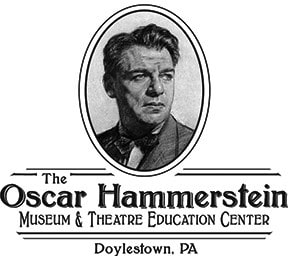
I believe even more strongly that preservation of historical places like the Highland Farm for the “Oscar Hammerstein Museum and Theatre Education Center” is essential for reminding the next crop of musical writers’ and fans’ about the team who helped establish the American musical.
For more about the efforts on the Hammerstein farm property, visit hammersteincenter.org and to read about the updated second edition of the Stephen Schwartz biography Defying Gravity visit caroldegiere.com/defying-gravity/.


